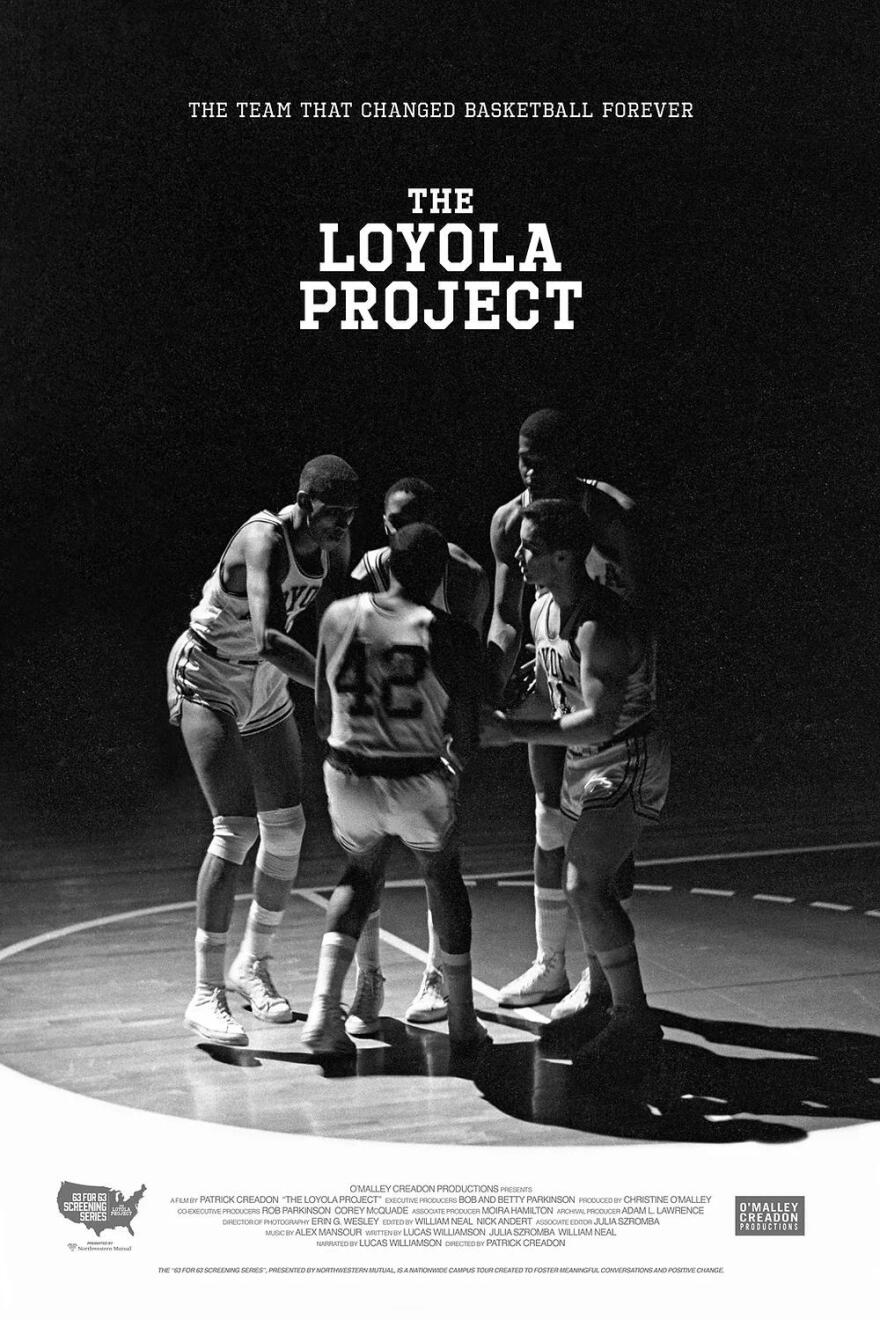If you’re a sports fan, you may have heard about the 1963 Loyola Ramblers men’s basketball team and their historic NCAA championship win, but there’s more to this team’s story than that final game of the ‘62/’63 season.
The documentary The Loyola Project reexamines the impact of the ‘63 Ramblers, whose national title run not only broke racial barriers and brought in a new era of equity in college basketball, but shaped the very style of how the game is played.
Lucas Williamson was a basketball player and co-captain of the Loyola Ramblers, and is the co-writer and narrator of The Loyola Project. Patrick Creadon is the documentary’s director. They share more about the film ahead of a free community screening at the Oriental Theater May 17.
Creadon recalls, "I first heard about the story [of the '63 Ramblers] shortly after Loyola's 2018 Cinderella run to the Final Four. I think like a lot of people, this story just was not on my radar. The irony is that Lucas and his teammates in 2018 really brought this story back to life. When you have a run, like like Loyola had in 2018, that becomes a it's not even just a national story. It's like an international story."
In 1963 there was an unwritten rule in college basketball that coaches could only play three Black players at a time, according to Creadon. At the time, Coach George Ireland of Loyola was fighting for his job and he realized that he needed new players, so he started actively recruiting Black players and playing more than three Black players in any game.
It was striking to see that the team had amazing chemistry on the court and yet outside of the court they weren't so in sync, Creadon acknowledges.
"They had their lives on the court, and they were spectacular, but they also had their lives off the court. And off the court, they lived two different realities: there was a white college athlete reality and there was a Black college athlete reality," he says.
"As the movie has traveled around the country, and we've now screened at over 80 college campuses, there's a lot of athletes and there are a lot of coaches who have told me personally that this problem still exists. It's different. It's evolved, but it still exists," Creadon adds.
Williamson agrees and although the racism isn't as blatant as it use to be, it has changed and taken another shape.

While Black players in the past didn't speak as openly about racism, Williamson says that Black players now are more confident in speaking out about racial issues and topics.
"We have social media, we have all these athletes today that are, you know, outspoken that are doing work in the community where it's almost seen as a good thing to go out and speak," he says. "But back then it was just, it was different, it was different than in the '60s. So that was that was what stood out to me."
Williamson recounts that when he and his Loyola teammates watched the movie together, they created a safe space to have conversations not just about basketball, but also the tougher conversations about the things that players dealt with off the court.
The story of the '63 Ramblers was one that was fading, he says, and he hopes that The Loyola Project can help spread the story so the legacy of the team can carry on.
"I think just the more people know about it, the more people talk about it that actually ends up improving legacy because this is a story, like I said, that needs to be told it needs to be heard," says Wlliamson.
A free community screening of "The Loyola Project" will be held at the Oriental Theater May 17, presented by Milwaukee Film and Northwestern Mutual. There will also be a post-screening discussion with Lucas Williamson, Patrick Creadon and UW-Milwaukee Athletic Director Amanda Braun.







